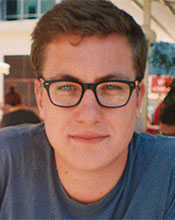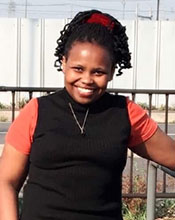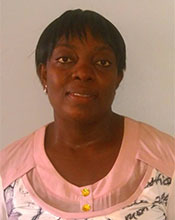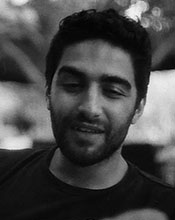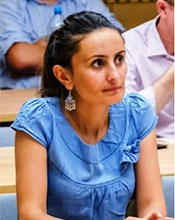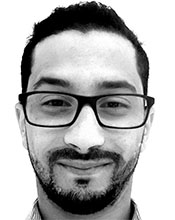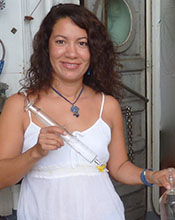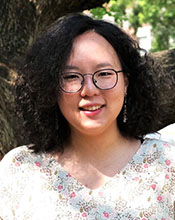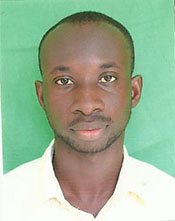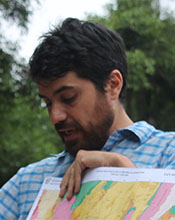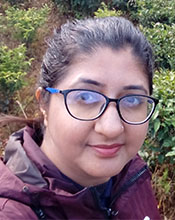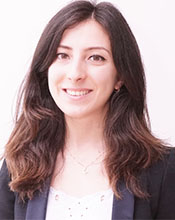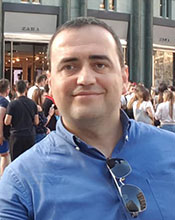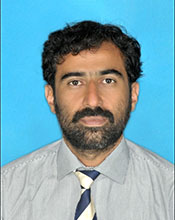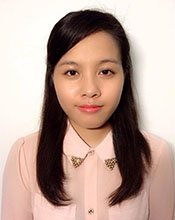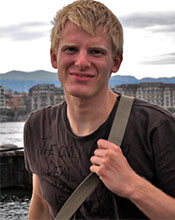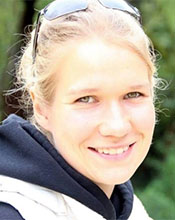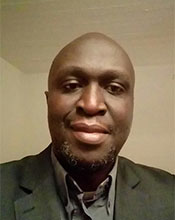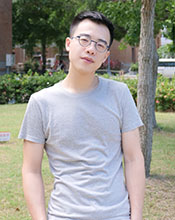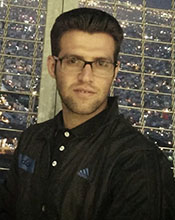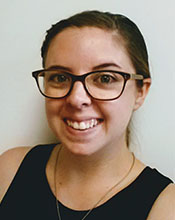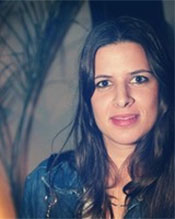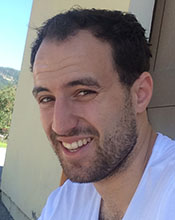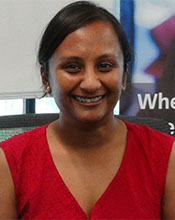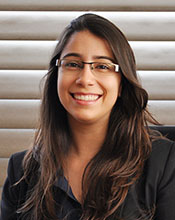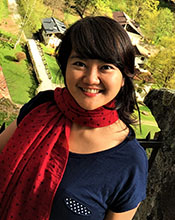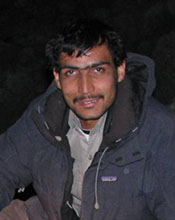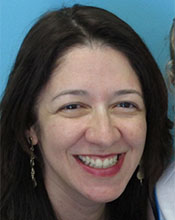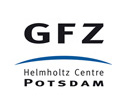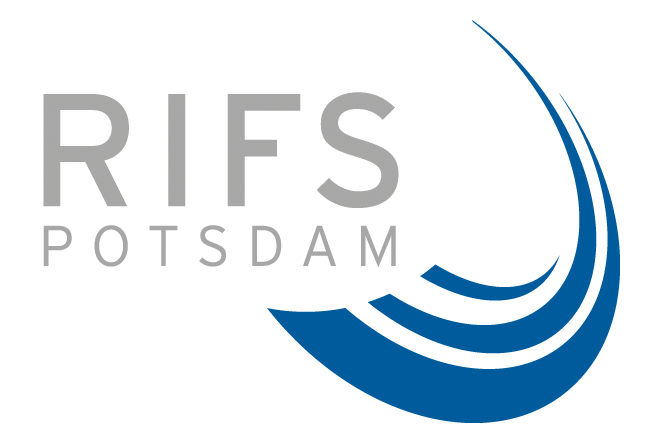Participants 2018
Participants
The short bios are presented in alphabetical order. This shall give speakers and fellow participants an idea about the professional backgrounds of the attendees of the forthcoming summer school.
Last update: 05.08.2018
Philipp Aepler
Philipp works as Assistant Director UK’s Department for Business, Energy and Industrial Strategy. He leads the European & International Cooperation team of the Regulatory Policy Committee, a body that scrutinises draft legislation on its impact to business before they are introduced to Parliament. Philipp holds a MSc in Political Economy with a focus on climate economics and climate governance from the London School of Economics, and an MLitt in International Security Studies from the University of St Andrews. His work and research have focussed on international climate governance and the circular economy in general, and zero waste and recycling policies as well as behavioural aspects of climate action in particular. Born in former East Germany, he grew up in the pristine natural environment of Brandenburg and Canada, works in London, and lives in Brussels.
Precious Akampumuza
is a PhD Candidate under the Graduate Program in Sustainability Science-Global Leadership Initiative (GPSS-GLI) at The University of Tokyo, Japan. She holds a Masters degree in Sustainability Science from the same university, and a Bachelor’s degree in Food Processing and Technology from Kyambogo University, Uganda. Her research focuses on the socio-economic impacts of Climate Change. Her research has been published in the Journal of Development Studies and more studies are under review in two journals; World Development and Climate and Development. She has reviewed articles for international journals like the Journal of Development Studies. Precious has won several awards including the Green Talent Award for High Potentials in Sustainable Development” awarded by the Federal Ministry of Education and Research of Germany and the “Best Paper Award” at the International Conference on Sustainable Development at Columbia University, New York. She has interned with World Health Organization, Rwanda office; Japan Institute of Global Health; United Nations University, Japan; and Japan Weather Association. She has held short research assistantship at the National Graduate Institute for Policy Studies (GRIPS), Japan.
Sewuese Gillian Ape
is an Electrical Electronic Engineer with a keen interest on energy production-related sustainability issues. She is studying for a Postgraduate Diploma in Electrical Electronics specializing in renewable
energy systems at the Federal University of Agriculture, Makurdi, Nigeria. Her professional background extends to resource management and her mix of technical, natural and social science skills are remarkable. In her research, Sewuese Gillian assesses the potential of renewable energies in Nigeria for sustainable renewable energy production. This takes into consideration land resource and climate impacts. Hence, her research hinges directly on SDGs 7, 13 and 15 and indirectly on SDGs 2 and 11 as she also assess the impact of land competition for bioenergy and food production on rural communities. It is her desire to contribute enormously to renewable energy production in Nigeria thus she develops her skills through such platforms as the Potsdam Summer School to acquire and exchange skills and expand collaborations and networks to make a broader outreach to people across the world.
Dursun Bas
is an EU Environmental Policy Expert at Regional Environmental Center (REC) Turkey and has seven years of work experience in different topics of EU Environmental Acquis and skilled in Regulatory Impact Assessment (RIA). Moreover, he is a PhD candidate focused in Earth System Sciences Department at Middle East Technical University. As a PhD student, he is currently supporting H2020 Nature4Cities project and H2020 Shape Energy Project. He holds a Bachelor of Science in Environmental Engineering and Biological Sciences. At REC Turkey, he has been working in the largest EU Funded Technical Assistance Projects. Currently, acting as an expert in recently started EU funded Natura 2000 TA Project and Low Carbon Development TA Project. He supports transposition and implementation of EU Nature Directives and EU Climate Acquis in Turkey, also providing assistance to public information and capacity building activities.
Fazila Beknazarova
is from Gorno Badakhshan Autonomous Oblast, the eastern part of Tajikistan. Made her bachelor degree at Khorog State University. Four years worked in one of the Aga Khan Development Network Agencies, Focus Humanitarian Assistance that addresses the increasing threat posed by natural disasters and climate change and works to ensure that poor people live in physical settings that are as safe as possible from the effects of natural disasters and that these settings provide access to social and financial services that lead to greater opportunity and a better quality of life. In 2014 applied for the University of Tsukuba in Japan and made her Master degree in International Relations and Public Policy. After graduating from Tsukuba University she returned to Tajikistan and since 2016 has been working as Eco-DRR expert with DIPECHO project funded by the European Union and Caritas Switzerland in Tajikistan. As part of her professionalization, in 2016 she attended trainings on Innovation in Disaster Risk Reduction at Central European University in Budapest, WOCAT Workshop on Sustainable Land Management in Tajikistan and Ecosystem-based disaster Risk Reduction training at Gadjah Mada University in Yogyakarta, Indonesia.
Tomás Rafael Bolaño-Ortiz
Tomás graduated with a cum laude honour’s degree in Environmental and Sanitary Engineering at the University of Magdalena – Colombia in 2008. Later on he obtained his MSc degree in Environmental Technology at the University of Huelva – Spain in 2010. He has devoted his research in atmospheric sciences to the study of biogenic emissions and how they reduce the albedo of snow, i.e., snow darkening effect (SDE). Currently, he is a PhD student in Mendoza’s Regional Faculty of the National Technological University in Argentina, at the Group of Atmospheric and Environmental Studies, and his current research efforts focus on the assessment of how absorbing aerosols affect snow albedo reduction in the central Andes of Argentina and Chile.
Nacer Mehrez Boukhris
aged 24, is a Tunisian production Administrator in a dairy industry. He won this position thanks to his versatility, interpersonal and managing skills gained through his multiple experiences as a seasonal recruit. Despite being in a comfortable position, Nacer always tends to seek for solutions for the environmental issues, which is his main field of expertise. In fact, he is holder of a licence degree in waste treatment and of a master degree in environmental engineering. Even though he doesn’t do it for a living, he aims to contribute to the amelioration of the environmental situation on the scale of his country, by spreading knowledge and sharing his experiences.
Valentina Caccia
is a Marine Scientist specialized in Chemical Oceanography. She has several years of international working experience developing & coordinating marine projects in diverse areas of Ocean Science (marine pollution, climate change, aquaculture, marine protected areas and coral reef conservation strategies). She has worked for different sectors including academia, government, consulting companies and non-profits organization in several countries. She has done research onboard oceanographic cruises around the world focus on Climate Change (carbonate parameters). She has worked at the University of Miami & Florida International University conducting environmental studies to evaluate the pollution (metals, nutrients and water quality parameters) that affects coastal and marine ecosystems in South Florida. Actually, she’s working at Nova Southeastern University in Florida, teaching graduate courses (Marine Chemistry, Marine & Coastal Processes, and Effective Environmental Communication). She has developed marine initiatives to educate the public about the environment: Global Blue Wave: environmental campaign focused on reducing the plastic pollution produced by plastic bags. Climate Change Challenge: virtual campaign focused on education and increasing awareness of Climate Change & Ocean Acidification worldwide leading up to the COP 21
Chiao-Chi Chen
is currently an assistant research fellow at the Risk Society and Policy Research Center (RSPRC) at National Taiwan University, which conducts research on risk society, climate change, air quality, energy transition and other emerging risks. She is passionate about such topics as the Earth’s resources and global environmental change, and likes to learn more by delving into her research. Besides this, she enjoys travelling, arts and crafts, and painting in her spare time.She holds a Bachelor of Science in Horticulture from National Taiwan University, as well as a Master’s of Environmental Management from the Graduate School of Global Environmental Studies at Kyoto University, where she majored in Landscape Ecology and Planning.
Her current research projects focus on risk governance of climate change induced disasters, and local governance of energy transition in Taiwan. Both of these subjects involve climate change issues, risk management, land use planning and stakeholder engagement efforts.
Bernard Fosu Frimpong
A Ghanaian who studied Forest Resource Technology and Environmental Science for Bachelor of Science and Master of Science degrees respectively from the Kwame Nkrumah University of Science and Technology in Ghana. Currently, I am studying for a PhD in Environmental Resource Management at the Brandenburg University of Technology, Cottbus. My work is entitled ‘Analysis of the effects of urbanisation on the climate of the Accra and Kumasi metropolises in Ghana’. I cannot wait to meet other participants in September.
Victor Garcia
I am a 42 years old Visiting Researcher at Potsdam University and Adjunct Researcher at National Science and Technology Council (CONICET, Argentina). Before, I acted as Adjunct Professor in Geology at Federal University of Pernambuco (UFPE, Brazil) and National University of Río Negro (UNRN, Argentina). My research is multi-disciplinary, spanning in the fields of Structural Geology, Tectonic Geomorphology and Analogue and Numerical Modeling. During my PhD I developed an original numerical platform to simulate the interactions between growing folds and surface processes. After my PhD I have focused on the study and characterization of potential seismogenic sources in the Central Andes of Argentina by conducting: field studies of morphostructures involving quaternary deformation, balanced structural cross sections to obtain reliable uplift and shortening rates, dating of recently exhumed basement rocks (AHe), deformed quaternary deposits (OSL, AMS 14C) and surfaces (CRN), and paleo-seismological analysis of active faults along natural trenches. I integrate these datasets with regional observations for better estimate the potential seismic hazard related with these structures and to qualitatively reconstruct the evolution of the Andean landscape during the last 10 Ma with focus on the Quaternary.
I am particularly interested in model the landscape response to contractional tectonics and climatic variability in active subduction-related orogens (e.g. the Andes) at several spatial and temporal scales.
Gülden Atkin Gençoğlu
I hold BS and MSc in Biology with specialization in ecology and conservation biology. Beside my academic profession, I have significant experience of project development and management in the fields of nature conservation, protected areas management (e.g. wetlands, marine and coastal areas), climate change adaptation, organic agriculture, resource efficiency, capacity development and environmental education with national and local governmental bodies, NGOs, universities, private sector, local communities and international agencies.
I started my early career working at one of the leading national NGO on nature conservation in which I had a chance to gain experience and get specialized in nature conservation, protection of biological diversity and protected areas management with engagement of wide range of stakeholders. Recently, I worked at UNDP for seven years under Environment and Climate Change and Inclusive Sustainable Development portfolios which enabled me combining environmental, social and economic dimensions of sustainable development. I took a responsibility of being a development expert and I performed leading and technical roles in several initiatives during my work at UNDP.
My professional interests cover biological diversity and ecosystem services, social-ecological approach and recently natural history illustration. My ambition is to contribute to increasing awareness of the interdependence of ecosystems and people, valuation studies of ecosystem services by social-ecological approach and incorporating ecosystem services into policy and management. I continuously empower my professional background and enhance my knowledge and capacity through literature review, membership of international professional bodies and online certification programmes.
My motto is “nature is everywhere, just look to see, remember being a part of it and reconnect with it”. For further details www.linkedin.com/in/gulden-atkin-gencoglu
Bigya Gyawali
is from Nepal. She is working as a field project officer at IUCN Nepal where she is currently coordinating to implement ABS- GEF project at site level in Kaski, Nepal. She has been working in the sector of conservation since early 2013. She graduated as a masters in environmental science from Khwopa College, TU, Nepal.
RaphaëI Hébert
is an early-career geoscientist and PhD candidate at the Alfred-Wegener-Institute in Postdam where he specializes in the study of vegetation and climate variability using paleoclimate archives, instrumental data and climate model results.
Born in Québec, he completed a B.Sc in Mathematics and Physics at McGill University in Montréal and subsequently a M.Sc at the department of Physics of the same institution. He wrote a thesis which proposed an observations-based model for climate projections and climate sensitivity estimates. For his PhD project he is investigating the large scale spatio-temporal structure of vegetation and climate variability using a vast database of pollen assemblages from sediment cores in order to understand past climatic and environmental changes, prior to the recent drastic anthropogenic changes to the environment.
Asal Ibrahim
is a solar engineering professional, she holds bachelors in Electrical Engineering and masters in Renewable Energy and Sustainable Development. Throughout her work in the energy sector, she has been recognized regionally and internationally for her research on the use of optics in solar thermal power. In 2013, she won the second place in the Arab Technology Business Plan Competition in Cairo for her project research, she was also awarded the prestigious Green Talents award from the German Ministry of Education and Research later in the year. In 2014, Asal was selected as one of the 79 TechWomen from around the world, a competitive program by the US department of state, rewarding accomplished women in the Science, Technology, Engineering and Math. Along with her passion for science and green technology, Asal is also an active member in several educational, cross-cultural and women-empowerment initiatives. She’s a leading member and organizer at the East West Initiative, a program aims to bridge the gap between the East and the West through inter-cultural and leadership programs designed for youth. She also served as the regional ambassador for the 2016 Technovation challenge in Jordan, a competition that challenges middle and high school girls all over the world to build a mobile app that will address a community problem.
Olgert Jaupaj
was graduated from faculty of Geology and Minning at Politechnic University of Tirana in geoinformatic as bachelor degree (2008) and a master degree in Engineering geology (2010). In 2012 he finished a specialization for the “Assessment & Management of Geological and Climate Related Risk CERG-C at the University of Geneva, Switzerland. He has been running the Albanian Geological Survey since June 2011 and is a member of the Landslide Response Team. Since Febryary 2014 he is the head of geoinformation section in Albanian Geological Survey an he is currently involved in the projects “Landslide Inventory Map” and “Landslide Susceptibility Map of Albania ” as member of the above projects he work as geologist expert for the geological risk evaluation and their assessment by using the GIS technology.
Hamad Kiani
I am a broadcast journalist based in Pakistan since 2002 with active interests in environmental degradation, climate change, water issues and conservation. I have a background in social sciences with postgraduate degrees in Journalism and Media, Mass Communication and Defense and Strategic Studies. In my job assignment, I write news bulletins and scripts of current affairs programs. I have written and produced news stories and programs on many environmental issues being faced by Pakistan. Currently, one of the major problems afflicting the country of 200 million is acute water shortage due to prolonged dry periods, no major dams’ construction over the last 50 years, only 2% forests on an area of 796,095 square kilometers and lack of political will and general apathy towards this burgeoning crisis.
I also worked at Deutsche Welle in Bonn, Germany for 1 year where I produced regular audio and online features on environment, health and science. However, I am interested in learning more on pressing issues challenging the mother earth, whether they are at the surface, beneath the surface or above the surface.
Currently, I am working as Deputy Controller at news and current affairs department of Radio Pakistan, which is the country’s largest and oldest public broadcasting network. I hope this program will give me new insights and knowledge on understanding the processes which are shaping the earth’s skin, as well as the techniques to effectively communicate the scientific knowledge for the consumption of news consumers. I also expect to learn and share experiences with fellow participants from around the world.
Phan Thi Loan
I am Phan Thi Loan and I come from Vietnam the country has been facing with many challenges such as climate change, overpopulation, pollution, unreasonable management of land and other natural resources. By participating in this program I would like to learn the knowledge from neighboring countries as well as other developed countries to contribute to the improvement of the living standard and the environment quality of my area. I also have a lot of stories, projects and solutions to share as well as many questions have not been solved to consult experts at the Postdam summer school. After graduating from Hanoi National University of Education, Vietnam in 2014, I did my Master program in Taiwan with the research about climate change and gender equality in Vietnam. After getting my Master of Arts in Taiwan, I worked at the Centre for Research and Promotion of Education for Sustainable Development, Hanoi National University of Education as a project assistant. I was a member of Vietnam research team in the project of International Social Science Council (ISSC) collaborating with 8 other countries for transforming to sustainability in the time of climate change. My main task was to research contextual situations of the Mekong River Delta, define germ cells for transformative learning activities as well as design research’s tools. Currently, I am doing my PhD research at National Taiwan University with the research being relevant to climate change perception of grassroots from cultural and historical aspects. In the process of studying and working, I am always aware of equipping more multidisciplinary knowledge related to human and environment interactions. At the same time, I also want to build up and expand the network with scholars, professionals, and people with the same interests and yearning to solve the current problems of the “hot, flat and crowded” world.”
Steffen Lohrey
studied at the University of Stuttgart and École Polytechnique in France, where he obtained a degree in aerospace engineering with a focus on scientific satellite technologies and atmospheric physics. He then researched on atmospheric physics at the University of Oxford, UK, and on the nexus of urban growth, transport modes and land use at the Mercator Research Institute MCC in Berlin. Steffen’s current research at TU Berlin focusses on cities and climate change. Steffen is also supporting the German Red Cross in an extreme weather adaptation project.
Berit Mohr
My name is Berit Mohr and I am 25 years old. I was born in Hamburg but grew up within the Danish minority in Flensburg. Due to my early introduction to a multicultural environment, I have been wanting to explore the world and obtained my Bachelor of Science in Geology and Environmental Science in New Zealand. Being located on a tectonic plate, New Zealand provides various opportunities to see different environments varying from big sharp limestone cliffs to volcanoes. I have learnt to appreciate and wanting to take care of the environment so that the human society can benefit from it continuously and enjoy the natural wonders of the world. I am ambitious to learn more and study from all perspectives.
Since January 2018, I have started my Masters’ in Geographic Information Systems with Lund University in Sweden via distance. The possibility to study via distance has enabled me to complete an internship with the intergovernmental organisation Mekong River Commission, based in Laos, which is concerned about the sustainable use of the Mekong River, which is also referred to as the “Amazon of Southeast Asia”. Here, I have been actively involved in the development of a management strategy for prioritised environmental assets, in addition to a project-based action plan on the sustainable use of fisheries development and management. As well as working in Lao PDR, my life here has shown me the gaps of education that the communities are missing and I wish to spread the principles of the sustainable development goals, which are so important to ensure the livelihoods of ALL people in this world.
Claude Mutombo
Graduated from the University of Cologne with a degree in African Studies, I have practical expertise (on the African continent) in the management of elections, project monitoring and evaluation, capacity building as well as planning and the implementation of community based projects. I worked for UN Peacekeeping missions in coordinating operational and logistical support for post-crisis electoral processes in Côte d’Ivoire and the Central African Republic. I also participated in the evaluation of the Konrad Adenauer Foundation project in the field of food security in DR Congo. During my assignments, I observed the destructive effects of climate change and its consequences, such as the migration of populations and the various conflicts related to those movements. In my opinion, we must act as quickly as possible to mitigate the impact of climate change, to educate and to build strong resilient communities. I am currently working for the GNE (Gesellschaft für Nachhaltige Entwicklung in Witzenhausen), a non-profit organization that trains graduate students and other professionals in the field of international project management, humanitarian crisis management and climate change management. By participating in this Potsdam Summer School, in addition to gain new knowledge, I look forward to meeting the other participants.
Mau-Ting Nee
works as the assistant research fellow at Risk Society and Policy Research Center, National Taiwan University (RSPRC, NTU). He holds a Master of Laws degree from Graduate Institute of Law for Science and Technology, National Chung-Hsing University. His research interests are mainly focusing on carbon pricing mechanism, climate change and energy legislation.
Currently, he is engaging in the team of policy and legal system of driving energy transition at RSPRC. Especially for the liberalization of electricity market reform and decarbonization of the power sector in Taiwan, he and his team keep providing policy and regulation recommendations. Recently, he is also working on the research of the legal system under the sustainability transition.
Ehsan Pashanejad
I studied Geography and spatial planning at the Tarbiat Modares University in Tehran. I am currently working in the Management and Planning Organization (MPO) of East-Azerbijan province in Iran as a spatial planner and collaboration with Apadana Development Planners (Beta in Persian) consulting engineers. I earned my bachelor in Geography and Urban Planning from the University of Tabriz. Working in the field of sustainability land management with multidisciplinary approach is one of my research passion. Part of my academic experiences during the last years relays on the relationship between ecosystem changes and human structures. In the pragmatic work experience I have been working on the territorial management and strategic spatial plans with central focus of regional spatial structure stimulates. Analyzing land cover changes and human settlement spatial structure patterns from planning point of view is another subject that interest me.
Given my intense research experience on diverse and interdisciplinary areas of geography and planning, I have developed a deep passion towards further exploring the filed with a special interest in investigating the relationship between natural and human systems under the umbrella of sustainability paradigm. It is my belief that, studying and being in Potsdam which is known as a city of scientific excellence and university town will be a great opportunity to develop international level skills in the best possible way. I would be fortunate to experience this program in Germany, which is a pioneer country in the implementing green policies and sustainable development. I enjoy with walking on the historical places, mountain climbing and watching documentaries.
Maureen Purcell
is currently a PhD student in Social Ecology at the University of California, Irvine, a program which takes an ecological and transdisciplinary approach to applied science that seeks to solve social and environmental problems. She holds a Bachelor of Arts in Environmental Science from the University of California, Irvine, with a minor in Anthropology, and a certificate in Sustainability from the university’s Center for Unconventional Security Affairs. After receiving her bachelor’s degree and prior to beginning her doctoral program, Maureen worked for several years in non-profit administration for a youth development organization in Sonoma County, California. A passion for public service, informal education, and human-environment interactions brought her back to the School of Social Ecology where her current research interests are focused on climate change and communication, including informal environmental education. In her free time, Maureen enjoys hiking, camping, hunting for cute cafés, and finding the best local breweries where she can spend time with friends.
Claudia Santos
is a PhD candidate in Climate Change and Sustainable Development Policies at the University of Lisbon. Her main interests are in climate impacts on human migration, adaptation and conflict. She holds an MSc from the University College London in Forensic Archaeological Science and has previously worked in the investigation of airplane crashes. She has been engaged in disaster response with humanitarian organisations specialised in shelter.
Oliver Gerald Schrot
My name is Oliver, 25 years old, and I am an early-career sustainability scientist from Austria. I am enrolled as a PhD-student in Geography at the University of Innsbruck and I am a member of the working group Education and Communication for Sustainable Development.
More specific, I work as a research project associate on a transdisciplinary project with young people called Generation F3 – Fit for Future, which is about climate change adaptation in the Tyrolean Alps. In my dissertation project, entitled Can research on climate change adaptation contribute to sustainable transformation of society? – Taking the path from impact and adaptation policy assessment toward second-order science I introduce the principles of second-order science to evaluate my very own and contemporary research on climate change adaptation. Taking a self-evaluative perspective and scrutinizing the general role of traditional (first-order) science in society and its exchange with decision makers on sustainability issues is an inevitable reaction to the apparent lag of climate policy. This approach combines the concepts of societal transformation and responsible science.
Concerning my academic background, I am holding a double degree Master of Science in Environmental Science from the University of Copenhagen and the University of Natural Resources and Life Sciences Vienna BOKU. I was very lucky to write my master thesis about winter tourism and high-emission regional climate change in West Greenland and I am highly trained in interdisciplinary working.
Apart from academia, I love reading literature, enjoy sports and I am eager meeting committed people.
From the Potsdam Summer School 2018, I expect a vivid exchange of ideas and many opportunities to engage with all participants.
Meera Shah
is Project Administrator for the Malabo Montpellier Panel team. She is also an Associate for Initiatives for Land, Lives and Peace, where she coordinated the annual Caux Dialogue on Land and Security from 2013 to 2017 and the North Rift Dialogue on Land and Security, in Baringo, Kenya. Meera completed a Masters in Environment and Development from the University of Edinburgh in 2014. Prior to her postgraduate studies, Meera was the Corporate Relations Manager at Save the Rhino International, Office Manager at E3G – Third Generation Environmentalism (a climate policy think tank in London) and a Researcher and Team Administrator at AccountAbility. Between roles, Meera has completed several internships at think tanks and conservation organisations including Environmental Law Foundation, Environmental Investigation Agency, Chatham House and Global Call for Climate Action. She holds and a BSc in Accounting and Finance from the University of Warwick. Meera grew up in Kenya.
Paula Siqueira
was born in Campo Grande/Brazil and has a bachelor’s Degree in civil engineering at the Federal University of Mato Grosso do Sul. She has worked with many water resources and sustainability projects related to the field such as road drainage design, hydraulic modeling of water distribution systems, rainwater reuse systems and solar panels’ layout design. In 2013, she went to Canada and studied at the University of Toronto as part of a sandwich scholarship program from the Brazilian government and worked in a solar panel company for a term. Nowadays, she is currently doing her master’s Degree in Environmental Technologies at the Federal University of Mato Grosso do Sul (Brazil) and her research focuses on applying the food-energy-water nexus concept to the Cerrado, which is the second largest Brazilian biome in extension. She is looking forward to meeting fellow participants of Potsdam Summer School 2018.
Prapassorn Siriwichai (Nonie)
Prapassorn Siriwichai is a PhD student at Chulalongkorn University, Thailand, in the interdisciplinary program of Environment, Development and Sustainability. She is currently working on her thesis focusing deeply on how local communities’ mechanism can preserve the “Kung Bangkrachao” green area. This place is the unique peri-urban agricultural area in the vicinity of Bangkok metropolitan that is affected by the urban sprawl and environment related problems. As the area of her interest and having a background in psychology with the ability of apprehending people’s dynamics ,she is inspired to integrate the sustainable development knowledge with human behavior studies. Therefore, her study emphasizes on understanding the human-environment relationship factors influencing the sustainable development in inclusive societies.
Naseem Sultani
pioneer biological conservationist and naturalist in Afghanistan, is a dedicated and self-motivated individual who has been working around the protected area management, environmental conservation, natural resource management, and climate change for 7 years. His great passion is to putting sustainable efforts on conserving biology and improving human resilience to climate change impacts and to protect them from climate-induced disaster risks. He assists his clients who are passionate about environment, climate change, rangeland, biodiversity, and forest management.
Before beginning his graduate school in the United States, Naseem served as Conservation Officer with WCS where he assisted the Afghan Government in establishing Band-e-Amir, the first national park of Afghanistan.
In addition to having served in all aspects of protected area management, he has been in legislative committee who amended the rangeland law of Afghanistan. He has joined climate change adaptation projects financed by Global Environment Facility and UNDP and implemented by MAIL.
Giang Tran
is from Vietnam and holds a master’s degree in Physics from the University of Warwick and a doctorate in Ocean and Earth sciences from the University of Southampton, UK. She is working as a postdoctoral researcher at the Geomar – Helmholtz centre for ocean research Kiel, Germany. Her current research is on assessing and comparing the impacts and uncertainties of different climate engineering measures. Many climate engineering methods have frequently been discussed as potential solutions to reducing atmospheric CO2 concentration or to reduce the harmful impacts of climate change. However, comparisons between these methods are difficult and often neglect the uncertainties introduced by imperfect models or our lack of understanding of the Earth system. Her work aims to provide a more comprehensive assessment by taking into account the different sources of uncertainty in Earth system modelling.
She is interested in better understanding the many aspects of the complex Earth system and the impact of climate change or climate engineering on lives and the environment in the next decades. Beyond her academic interests, she is eager to learn more from the perspective of people working in private sectors, government agencies or NGOs in the subject of climate change.
Gisleine Cunha Zeri
is a fellow researcher at the Center for Earth System Science (CCST) working on the Nitrogen Human Environment Network (Nnet) project, and a PhD candidate in Earth System Science at the National Institute for Space Research (INPE), in Brazil. She is interested in socioeconomic and political impacts of nitrous oxide (N2O) emissions from agriculture and their implications on sustainable development, public policy, and food security in Latin American countries. Before joining the CCST, Gisleine worked in a number of organizations. Among them are National Center for Monitoring and Early Warning of Natural Disasters (CEMADEN, Brazil), the Max-Planck Institute for Biogeochemistry (Germany), and the Center for Weather Forecast and Climate Studies (CPTEC, Brazil). Other research interests are adaptation for climate change, risk communication, disaster risk reduction, and scientific communication.
